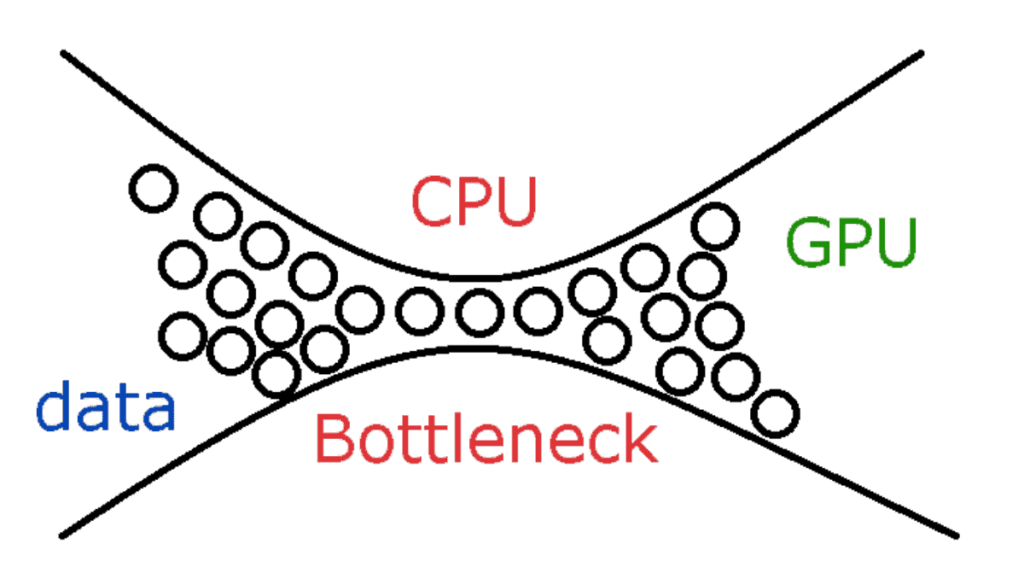Bottleneck Calculator One of the biggest concerns when building or upgrading a PC is whether the components work well together. This is where the term “bottleneck” comes in. You’ve probably heard of the term if you’re an avid gamer or frequently use heavy-duty software. But what exactly does it mean, and how do you avoid it? That’s where a bottleneck calculator comes into play. It’s a tool that helps users determine if any part of their computer is underperforming and limiting the potential of the rest of the system.
In this article, we’ll dive deep into what a bottleneck is, how a bottleneck calculator works, and why it’s essential for anyone looking to get the most out of their PC. Let’s get started.
Understanding the Concept of Bottlenecks in Computers
A “bottleneck” refers to a scenario where one component of your computer is significantly slower than the others. Just like traffic slows down when there’s a bottleneck on the highway, your computer’s performance can lag if one part isn’t pulling its weight. For example, you may have a high-end graphics card, but if your CPU isn’t powerful enough to keep up, you won’t get the performance you expect from the GPU.
Here’s a simple way to think about it:
- The CPU (central processing unit) handles overall tasks and processes.
- The GPU (graphics processing unit) focuses on rendering images, games, and videos.
- RAM, storage, and other components play their roles.
If one of these components is weaker than the others, it limits the ‘s performance while system’s performance. This is what we call a bottleneck.
Why Use a Bottleneck Calculator?
With so many different components available on the market, it can be challenging to determine whether your system is balanced. That’s where a bottleneck calculator becomes a valuable tool. It helps users check whether their chosen CPU, GPU, or other hardware will work efficiently together.
Key reasons to use a bottleneck calculator include:
- Saving Money: No one wants to overspend on a high-end GPU only to have it throttled by a weaker CPU.
- Better Gaming Experience: Gamers benefit from this, as smooth gameplay is often the top priority.
- Avoid Performance Issues: Identifying bottlenecks before building a system helps prevent frustrating lags or slowdowns.
In short, a bottleneck calculator ensures that all components work harmoniously, providing an optimal performance-to-cost ratio.
How Does a Bottleneck Calculator Work?
Using a bottleneck calculator is pretty straightforward. Most calculators function based on a database of hardware components and their performance characteristics. You input the specs of the CPU, GPU, and sometimes even the RAM or storage. Then, the calculator analyzes whether any of the parts will limit the performance of others.
Here’s a step-by-step breakdown of how it works:
- Input Your Components: Choose the CPU, GPU, and sometimes RAM or storage from a dropdown menu.
- Run the Calculation: The calculator compares the components’ capabilities.
- View the Results: It provides a percentage or a simple analysis to show if there’s a bottleneck. Typically, the system is considered well-balanced the system is considered well-balanced if the bottleneck is below 10%.
Example Table: Bottleneck Percentage Explanation
| Bottleneck Percentage | Interpretation |
|---|---|
| 0% – 10% | Optimal, no bottleneck detected. |
| 11% – 20% | Minor bottleneck, but generally acceptable. |
| 21% – 30% | Noticeable bottleneck, potential for performance loss. |
| 31% or higher | Minor bottleneck but generally acceptable. |
A bottleneck calculator allows users to make informed decisions, ensuring they don’t waste money on mismatched parts.
Common Causes of Bottlenecks
There are several reasons why bottlenecks happen. These are the most common causes:
1. Imbalanced CPU and GPU
One of the most common causes of bottlenecking is when a powerful GPU is paired with a weak CPU. The CPU can’t process data fast enough, causing the GPU to sit idle and waste its potential.
2. Low RAM
Even if your CPU and GPU are top-notch, insufficient RAM can slow things down. Without adequate RAM, your computer won’t be able to load and manage multiple applications or large files smoothly.
3. Old or Slow Storage
Using an old hard drive (HDD) instead of a faster solid-state drive (SSD) can slow down your system’s overall performance. Even if your CPU and GPU are fast, waiting for data to load from a slow storage device can create noticeable delays.
4. Power Supply Issues
Someimes,, bottlenecking can be caused by power supply problems. The system might not perform at its full potential if the PSU (power supply unit) can’t provide enough power for your components.
How to Avoid Bottlenecks
Avoiding bottlenecks is easier when you know what to look for. Here are some tips to keep in mind:
- Balance Your CPU and GPU: For gaming, the GPU tends to do most of the heavy lifting, so invest in a sound graphics card. However, make sure the CPU is strong enough to match its power.
- Upgrade RAM: Ensure that your system has enough RAM to handle your tasks. 16GB is generally a good baseline for gaming, and more might be necessary for professional work.
- Use an for professional work SSD: If you’re still using a traditional HDD, consider upgrading to an SSD for faster load times and overall system responsiveness.
- Monitor Your System: Tools like Task Manager (on Windows) or Activity Monitor (on macOS) can give you a real-time look at your system’s performance. If one component consistently hits 100% usage while others sit idle, that’s a sign of a bottleneck.
Best Bottleneck Calculators Available Online
Now that we understand how vital a bottleneck calculator can be let’s look at some of the best online tools. These free free calculators aresible, user-frendly, and can help you plan your build effectively.
1. PC Builds Bottleneck Calculator
This is one of the most popular tools around. It’s easy to use and provides detailed results based on your input. You enter your CPU and GPU, and the calculator does the rest.
2. CPU Agent Bottleneck Calculator
CPU Agent offers a slightly more advanced calculator. It evaluates CPU and GPU performance and factors in different game titles. This is perfect for gamers who want to know how their system will perform with specific games.
3. Newegg Bottleneck Calculator
This tool, offered by one of the biggest names in PC hardware sales, is a reliable option. It’s built into their website and helps you pair the right CPU and GPU for gaming or productivity needs.
Bottlenecks in Gaming vs. Productivity Work
While gaming bottlenecks usually revolve around the CPU and GPU, productivity tasks like video editing, 3D rendering, or software development can be bottlenecked by different components. For example:
- Rendering: This is usually CPU-heavy, so a high-end CPU is crucial.
- Editing Large Files: This task can put a lot of pressure on the CPU and RAM.
- Game Streaming: If you’re gaming and streaming simultaneously, you’ll need a strong CPU to handle both tasks.
Using a bottleneck calculator, you can ensure that your system is well-suited for the type of work or gaming you plan to do.
Conclusion: Why You Should Use a Bottleneck Calculator
Building or upgrading a PC is an exciting venture, but ensuring your components work well together is essential. A bottleneck calculator takes the guesswork out of the equation by showing if any part of your system will hold back the others. This simple tool can save you from the disappointment of underperforming hardware and help you get the most out of your investment.
So, whether you’re a gamer looking to crush the latest titles or a professional needing a reliable machine for demanding tasks, a bottleneck calculator is a must-have tool. It ensures that your build is balanced, powerful, and ready for anything you throw at it.
In short, using a bottleneck calculator is one of the best things you can do to optimize your system and avoid performance hiccups.

